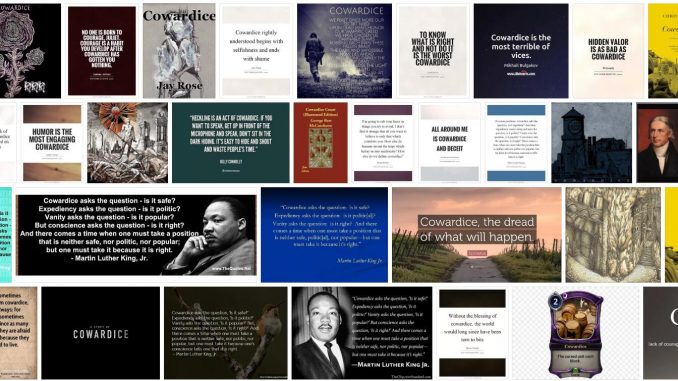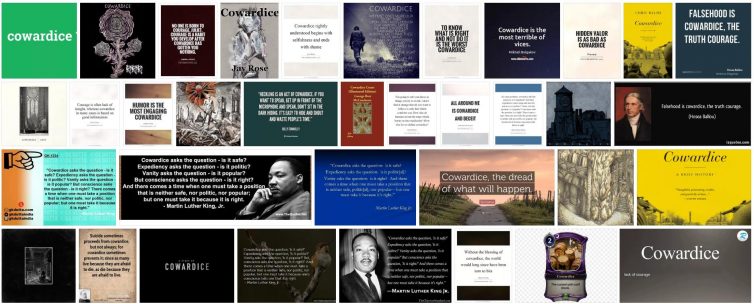
What is Cowardice?
Cowardice is a noun means lack of courage, determination and the will to act when necessary in a potentially risky or compromising situation. Thus it is opposed to the notion of bravery, considered as a virtue. If bravery is a virtue, cowardice is understood to be a vice.
Among the synonyms and the words related to the term cowardice can be referred to: cowardice, dread, weakness, intimidation, pusilaminidad and fear.
However, it is important to distinguish that cowardice and fear are not equivalent. Fear is a universal feeling that constitutes the first and essential defense mechanism of the human being.
It is also necessary to distinguish cowardice from prudence. While prudence is the ability to discern the way and the moment to act in the face of a certain situation, cowardice consists in stopping acting or acting treacherously after having discerned, due to the fear of facing the consequences. In other words, the cowardly person knows what is right, but still decides not to do the right thing for fear of the consequences.
This means that a cowardly act is a deliberate act of evasion of responsibility in the face of a situation that involves a level of risk and / or commitment. For example, facing a situation of danger of someone close, a situation of injustice or a confrontation.
A possible and fairly common example is this: When a person witnesses child abuse in their neighborhood and prefers to remain silent to avoid problems, they act cowardly by omission.
He is also a coward who does not have the courage to declare his opinion at a necessary moment. Example: “They asked for his opinion and yet he remained silent. Now we will all suffer the consequences. He is a coward.”
The same term applies to a person who waits for his enemy to turn his back to deliver a treacherous blow, thereby achieving one of two things: either the attacked person will not be able to defend himself or, if he manages to defend himself, the coward will always have an advantage. “The very coward stabbed him in the back!”
These situations are exemplary cases of the use of the qualification of “coward” or “acts of cowardice”. These examples show that cowardice does not only manifest itself in fear of risking life. Fear can be, for example, fear of losing comfort, losing a certain lifestyle or losing a certain image, among others.
For these types of reasons cowardice and cowards are rejected in all cultures, which is clearly represented in derogatory expressions such as “you are a chicken”. It is not surprising that this phrase has been included as an engine of conflict in the famous Spielberg saga called Back to the Future . Such is the disgrace of being called a coward that whenever Marty McFly is called a “chicken” he feels compelled to demonstrate his bravery.
Cowardice according to ethics
From an ethical and social point of view, cowardice is seen as an attitude of complicity that favors the perpetuation of social injustice. The acts of cowardice are considered co-responsible for social damage, even when people have not conspired or even when they have not wished for misfortune.
Cowardice according to religion
From a religious point of view, cowardice is considered a sin founded on the extreme lack of self-confidence as a result of different internal contradictions. Consequently, cowardice is an absence of trust in divinity.
Phrases about cowardice
- “The brave are afraid of the opposite; the coward, of his own fear ”. Francisco de Quevedo.
- “Cowardice is a matter for men, not lovers. Cowardly loves do not reach love or stories, they stay there. Neither memory can save them, nor does the best speaker conjugate.” Silvio Rodríguez.
- “You are a chicken”. Popular saying.
- “You had better say here he ran than here he died.” Popular saying.
